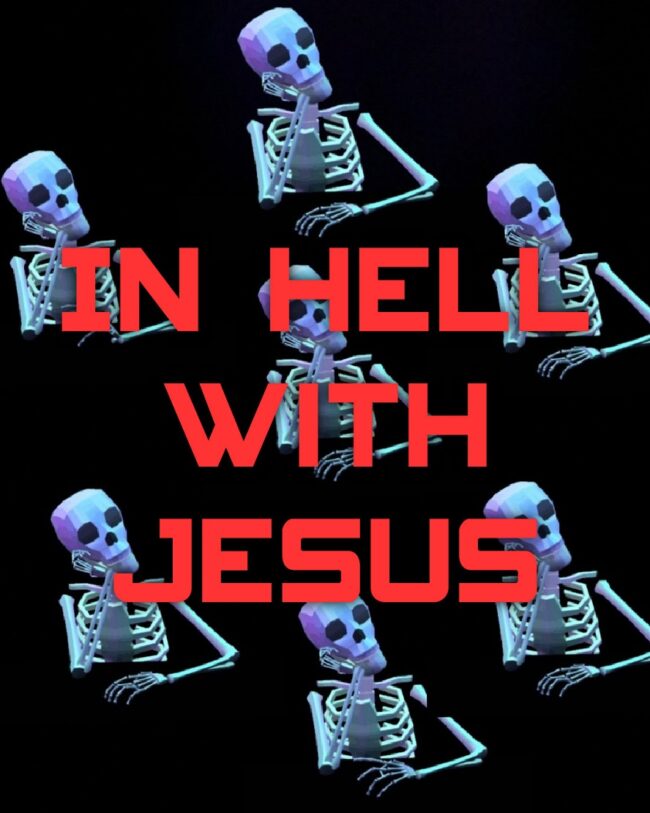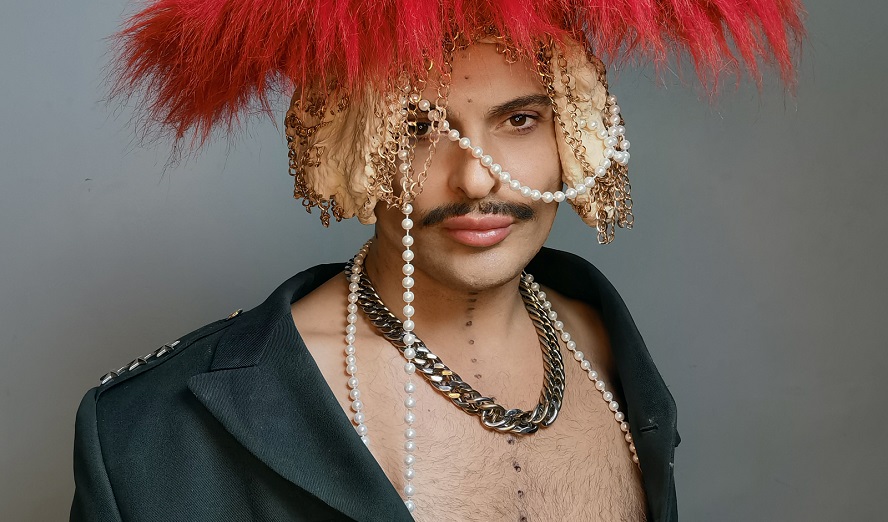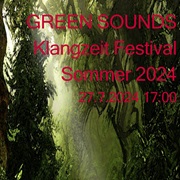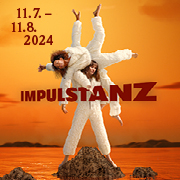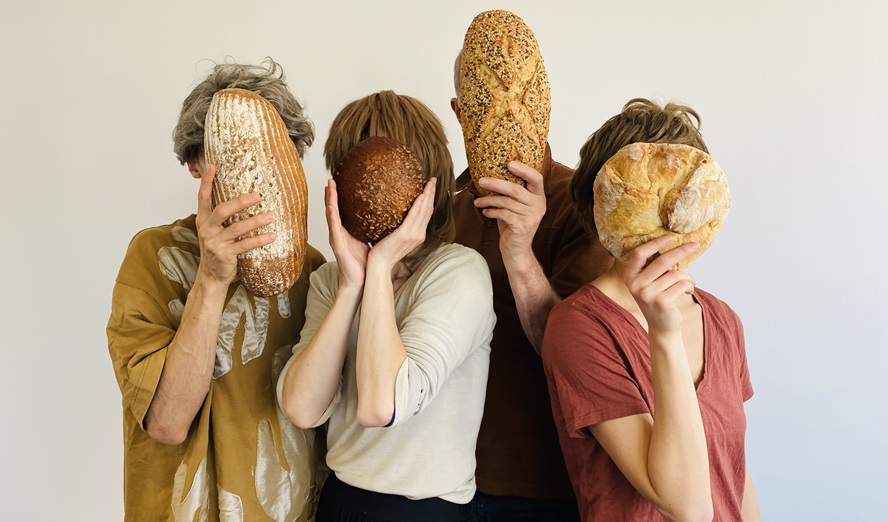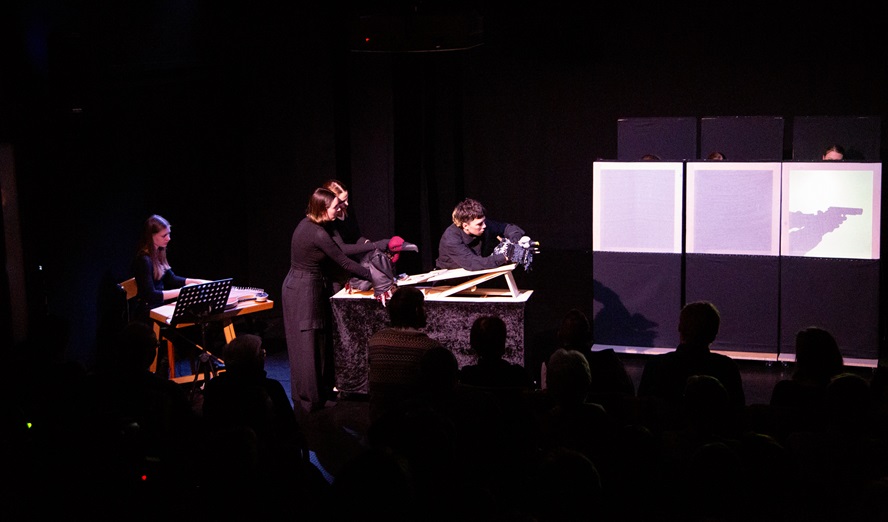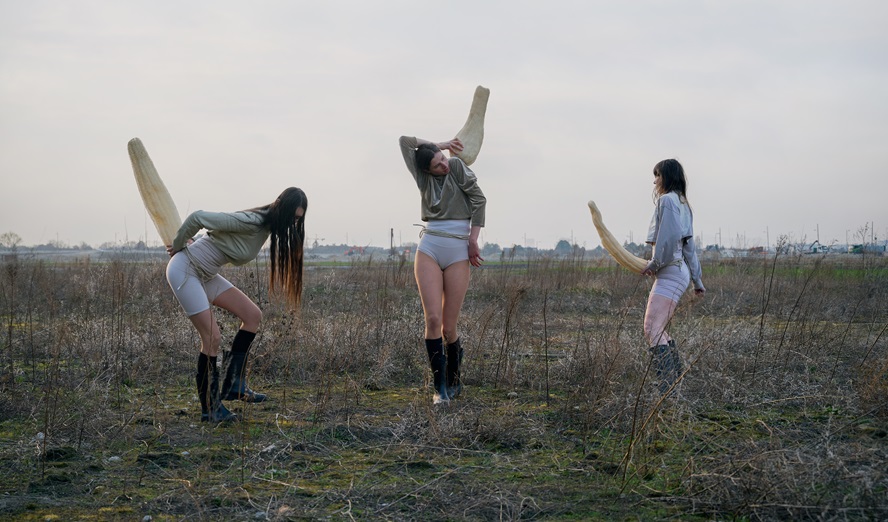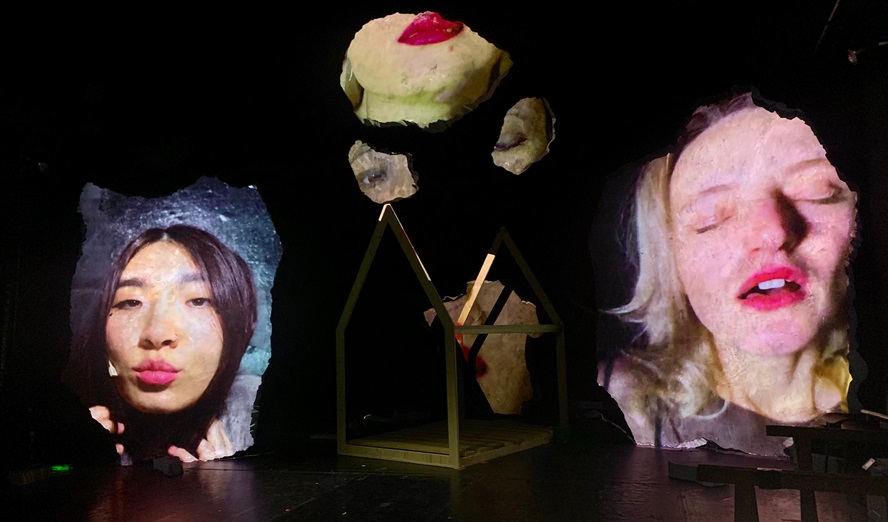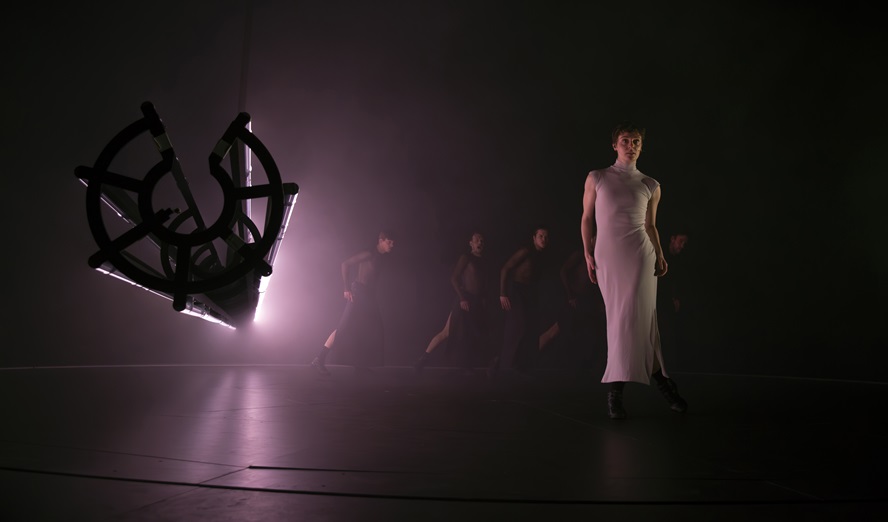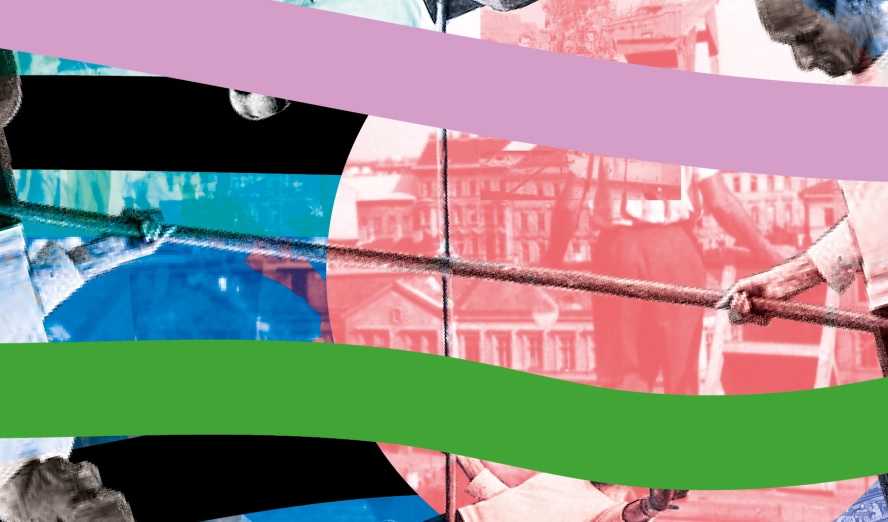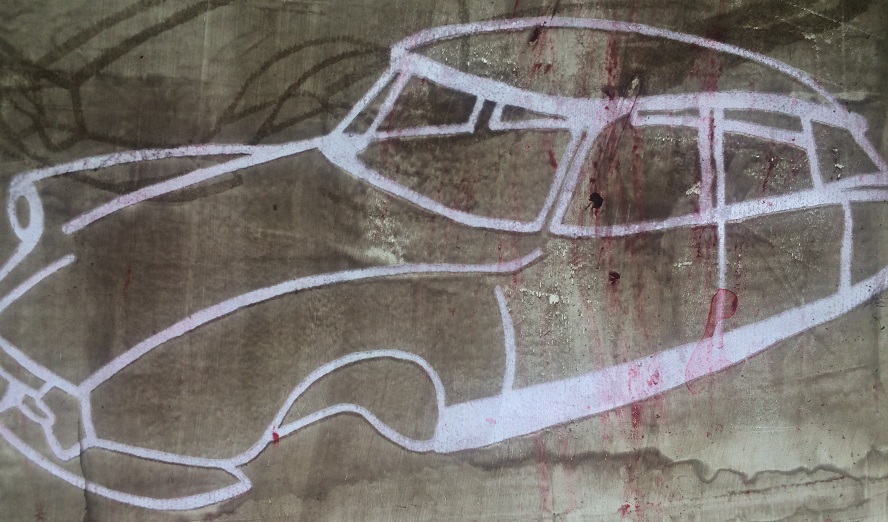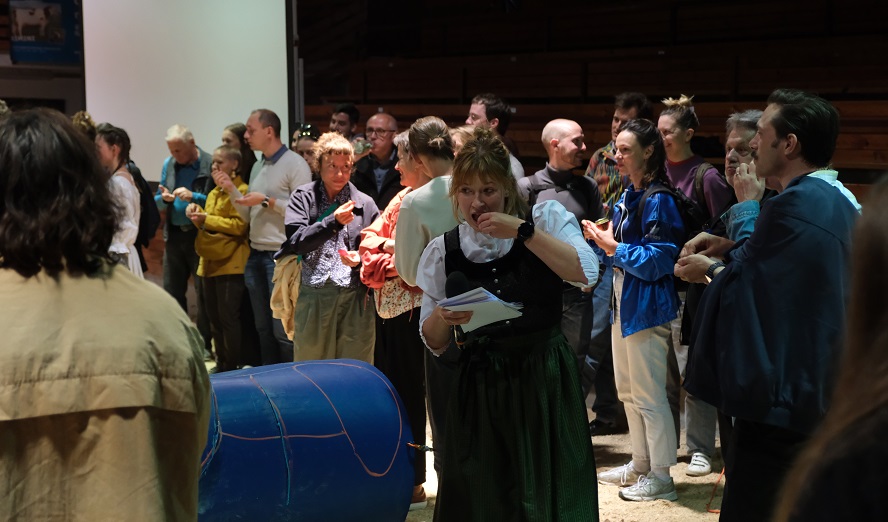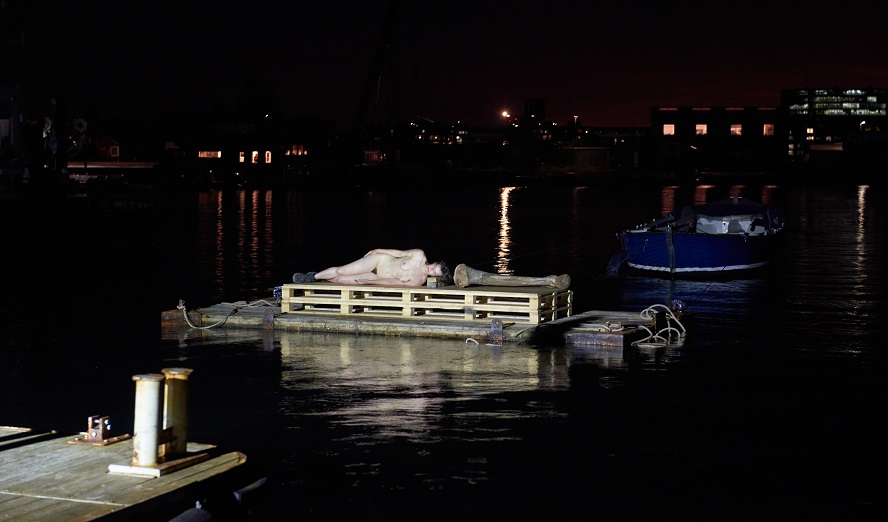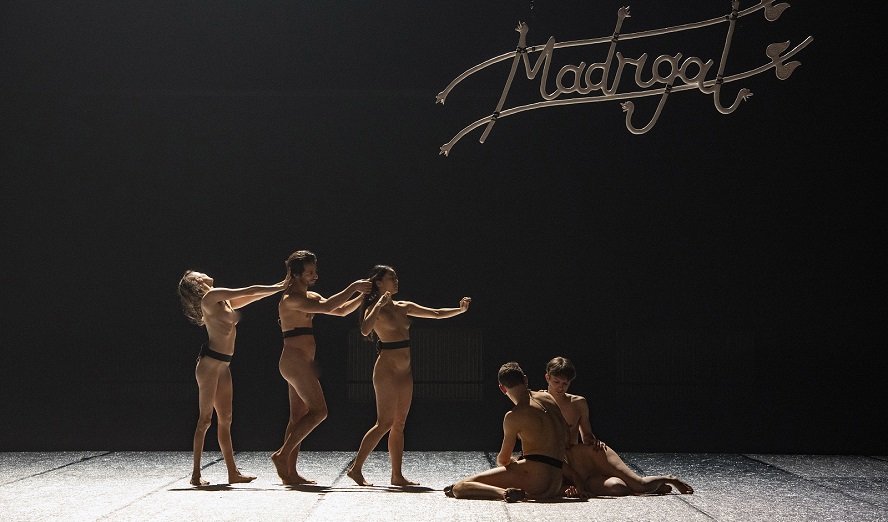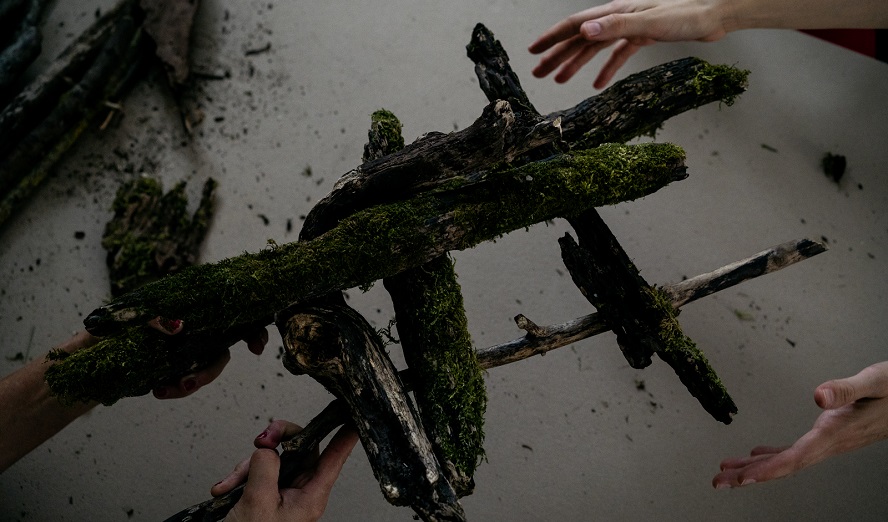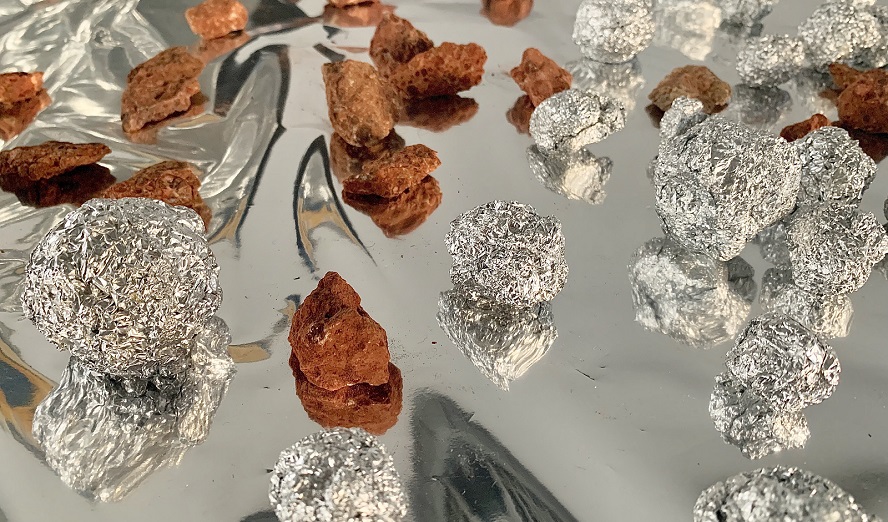On the 1st of August 2022, the new performance of the Bulgarian performer, singer and visual artist Ivo Dimchev has its world premiere at Impulstanz Vienna International Dance Festival. Dimchev developed his artwork as a physical theatre artist over all genres. As the theatre and dance theoretician Mira Todorova from Sofia writes about him: »Ivo Dimchev’s work unfolds the installation as enclosed finite space of presence in which different images and objects are arranged and exhibited.« skug spoke with him about hell, Jesus, gay bars and saunas, the political situation in Bulgaria and his music (taste).
skug: Your new piece is called »In Hell with Jesus«. Andreas Weber, a German philosopher, tried to sum up the attempt of Christianity like this: »2000 years of salvation through control«. A bar on the other hand is rather a place where you intentionally attempt to lose control. Can you relate to these thoughts?
Ivo Dimchev: I left the contemporary stage for a few years but now here we are, back again: The fictional story of my musical is happening in a gay bar. I always wanted to make a musical and I thought the perfect place for a musical would be a gay bar. The musical is based partly on the home concerts I did in the last years in Vienna during the pandemic. Sometimes the people would even invite me to a rented place where they had a private party. A gay bar is for sure a place for freedom and losing control, but it has its own rules and regulations. They are just different to bars in popular society. You may think it is wild there, and that you can do anything you want there, but that is not true. I think for me gay bars and saunas are places for a kind of freedom that I could not have in society anywhere else: this way of communication, this way of having no boundaries. This shamelessness I can only have in gay bars or on stage in the context of contemporary performance and art, where you also have an enormous amount of freedom. That’s maybe why I always come back on stage.
Your work usually contains a lot of irony and sarcasm. What about the new work?
It is an interesting phenomenon: People don’t think that I am serious. Sometimes when I am serious people think that I am sarcastic or ironic. In the musical we try to answer those questions, written on the wall in this gay bar, after we are shot by one of the characters. I started to do interviews during the pandemic because I wanted to see what kind of choices people in the audience make. By the particular choices people make I understand more about them, or I can fantasize more about them. Most of the questions were false dilemmas ‒ nobody will have these dilemmas ever in their live. Sometimes when people think I am sarcastic I am just curious. Maybe this is my drama. Some examples: I have a song about »Banitsa«, a national dish in Bulgaria. It is the most basic, cheap food you can have, a pastry with cheese and eggs. This song became my most popular song in Bulgaria, and all the people think that I am ironic. But I just love Banitsa, and that is why I sing about it. Or I have also a song called »Sucker« where I sing about sucking a cock or a cunt. I call myself a Christian whore in another song. And that is what I am: I am a Christian and a whore. I am not making a joke about Christianity or whores.
I got used to you singing pop ballads when I astonishingly discovered your new songs in Bulgarian language …
I moved to Bulgaria; and in the context of Bulgarian pop-folk I wanted to say something. I wanted to react as a singer-songwriter. But at that time, I became very cynical in the eyes of the people. Most of the songs are very dirty, very sexual and body oriented ‒ and they are also presented in the new show. I use the language and vocabulary of my private life. In the former romantic songs, you could only see a very small part of me. »Slut« was the first song in English that was more sexual. But when I started to sing in Bulgaria, the lyrics became more vulgar, very much about all kinds of sex. I am very direct in my real life, so I didn’t want to be different in the songs anymore. In contemporary art on stage, it is very hard for me to talk about love. I think contemporary art and performance is a place for resistance against the weakness and infantility in ourselves somehow, also against this conventional, old-fashioned psychological stuff about love and being vulnerable or suffering. There is no special someone, no godlike person, I could put on a pedestal to suffer when this person does not pay attention to me. I find this behaviour very childish, and I don’t know why I even sung about this. Maybe there is a part of me, a vulnerable child, that is weak and unlogic. But I am ok going in both directions. And I have a lot of respect for the vulnerable, weak, suffering, and lonely side of me, and I use it as an instrument to produce a particular culture.
How do you react to homophobic feedback, especially in Bulgaria?
I prefer not to react. The other side doesn’t want to enter a conversation, they just want to exclude or threaten me. They don’t accept me the way I am and that’s it. What would be their proposition, how would they want me to be? They are not happy with my vocabulary, with my visual language, they don’t understand it, they don’t even try to relate. So I am not entering those conversations of boring, primitive aggression based on their fears and limitations. I don’t want to limit my vocabulary just because of them, I have an audience that understands me, and I am in a dialogue with them. But I am aware that I should be very precise and clear. My audience in Bulgaria surprisingly is mostly heterosexual, which is very strange. When I perform in Berlin, in New York or in Hollywood, I have a lot of gays in the crowd. But in Bulgaria I don’t, so that is why I even have a song about it, called »Gays in the Crowd«. And I’m going to sing it in the musical as well. Although I know it is not so relevant here in Vienna. Even if it sounds very conventional for a pop artist, I like to have sex with my audience …
What do you think of the political situation in Bulgaria at the moment?
I was raised in Bulgaria, but half of my parents have moved from Skopje. I know that there are clashes, misunderstandings of history. But I find that so complicated that I don’t even want to think about it. I don’t think there is a solution for that. How can you divide a culture, a language? When you try to divide something, there will always be tragedy. Neither I, nor the politicians can solve it. That’s the reality: the more borders you build, the more dramas you get.
Let’s come back to Jesus. Why is he hanging out with you in a gay bar?
Jesus is always helpful. The title of the musical comes from one of the questions that I asked people during the house concerts: »Do you want to go to hell with Jesus, or do you want to be in heaven with Trump?« When you create this oppositions, this impossible situations, where you have to choose between good comfort or good company, people usually go for the company. Not all the Christians did want to go to heaven when I put Trump there. People felt save with Jesus, even in hell. But I think secretly they are more attracted to hell ‒ and Jesus is sexier than Trump. When I don’t know what to do in my life, I think: »What the fuck would Jesus do in this moment?« And then I always know what to do. He is still a role-model, I have a show called »ICure« where he gives me a healing blowjob.
Going back in time, you did Butoh at the beginning of becoming a choreographer. Are the Asian concepts of Religion or Spirituality of any importance to you?
No, I am not interested in that at all. I did Butoh for a little while when I was very young, it was for a short moment a place of no rules and regulations dance-wise. I found it very liberating and comfortable, because it is also so inner-oriented, it is not following a certain line of good and bad, of proper and improper techniques. It is very free, very intense, and also quite dark. And I was still quite dark at this age, when I was in the beginning of my twenties. I was attracted to this. But then it became boring as a form.
What is your current focus in your performing arts?
I didn’t want to be so elitist for a while. So I tried to escape from contemporary art and contemporary performance several years ago. And I really betrayed myself as a contemporary artist because I did what I disliked: concerts. I can’t stand concerts, I find the form of a concert very predictable and conventional. I liked it as an ornament for my shows but would never have it as a main mean of expression. But that’s what I did for a few years. I kind of enjoyed the small space of a song, everything is synthesized with a few words and a few melodic lines. I was ready to enter a dialogue with a big audience that understands the language of a song. I wanted to expend my vocabulary first, and then I wanted to write a lot of songs. My shows will disappear, but when you write songs you are accessible for a longer time, for more generations. I started to understand that I can be represented by a song, the way I look at the world, the way I am, the freedom I have in my spirit and in the live I have lived. I wanted to dedicate some of my time to produce a big amount of those songs because I knew that they will last.
One question you asked in your interview series »Iv’s hour« was: »What music genre can’t you stand?« So now I redirect this question to you.
I don’t like Viennese Waltz. It feels very aristocratic and simple to me. I cannot relate in any way to this, it is so far away from me. I need to have a voice to relate to the music, I don’t like instrumental music. I am from the mountains of Bulgaria, my parents and grandparents sang songs with weird measurements like 7/8, 9/8, 5/4. I have those measures in my DNA. When I was very young, at the age of twenty, I even tried to become an opera singer, I tested it for a few months, but I don’t like the style of operas in general. I didn’t like the efforts, all these rules and regulations. I decided to become a choreographer because I realized that this way, I can do everything I want.
